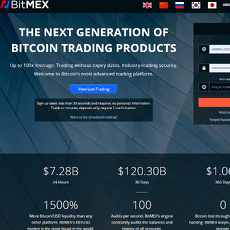Huobi Global Review
Huobi Global
www.hbg.com
Huobi Global Bitcoin Futures Review Guide: Everything You Need to Know (with FAQ)
Thinking about jumping into Bitcoin futures but not sure if Huobi Global is the platform for you? Maybe you’re worried about who can actually sign up, or if your crypto is really safe on there. Or maybe you’re just tired of reading articles that sound like they’re written by robots (we’ve all been there).
What do people struggle with when using Huobi Global?
Let’s get real for a sec. When you first land on Huobi Global, it all looks slick—but once you scratch the surface, there are questions crawling out everywhere. Here are some of the main pain points I see users complain about or ask for help with:
- Who can register? Is it true that US citizens are blocked from using Huobi Global? And are there any workarounds?
- Is my crypto safe? Is Huobi another exchange you’ll see in next month’s crypto news for getting hacked, or can you trust it?
- How does Bitcoin futures trading even work? Most guides throw words like “leverage,” “liquidation,” and “margin calls” at you like confetti. Where’s the simple, human explanation?
Sound familiar? If any of these worries are bouncing around your head, you’re in the right place!
Here’s my promise: a clear, no-BS guide
You won’t find walls of jargon here or have to jump between five different info sources. I’m breaking down Huobi’s Bitcoin futures offering step by step, in plain language—from who can open an account and get verified, to whether you can actually get your money out (without fees eating you alive). I’ll even answer the big FAQs people are scared to ask in public forums.
- Exactly who can use Huobi Global and who can’t (with real-world examples!)
- How does the withdrawal process really work, and do you need tons of documents?
- Why do so many people get tripped up during signup… and does that mean the platform isn’t safe?
Highlighting the main benefits for you
- Save hours of frustrating back-and-forth Googling with step-by-step explanations.
- Get answers to real questions that other users, just like you, actually care about.
- Feel confident in your next move—whether that’s signing up, depositing, trading, or walking away!
Quick tip: According to a recent Statista report, over 48% of crypto traders get stuck during exchange registration or the first withdrawal—meaning you’re definitely not alone. And if you’re dealing with account restrictions or safety questions, what you do next really matters.
Ready to learn what really sets Huobi apart—or might make you pause? Hang on, because in the next section, I’ll reveal what makes Huobi Global unique, how it got this big, and why some traders swear by it. Curious? Let’s find out…
What is Huobi Global and What Sets It Apart?
Let’s be honest—there are a ton of crypto exchanges out there, and most of them sound the same if you read the marketing. But Huobi Global? There’s a reason why it keeps popping up in so many Bitcoin futures discussions, especially among traders who've been around the block. So, what makes this exchange so interesting?
A quick look at Huobi: How it rose to fame
Huobi Global has been around since 2013, which is almost ancient in crypto years. It started in China and, after regulatory crackdowns, quickly made moves to set up shop globally. This wasn’t just scrambling for survival—it actually turned into a huge strategic win.
Picture this: While some recent exchanges are just trying to keep the lights on, Huobi has handled billions in trading volume and ranks consistently in the global top 10 for spot and derivatives volume (CoinGecko and CoinMarketCap data back this up if you need receipts). That level of liquidity means tighter spreads and less slippage—stuff serious traders have nightmares about.
Why people choose Huobi for futures trading
If you ask around on crypto Reddit or TradingView, you’ll hear regulars saying:
“Huobi’s order execution is fast enough for scalping. I’ve never been stuck in an order loop like on some buggy exchanges.”
- Deep liquidity: You’re much less likely to get burned by wild price swings when placing big buys or sells.
- Global reach: There are users in over 130 countries, which impacts everything from the support hours to the type of coins listed (yes, the selection is pretty wild at times).
- Battle-tested platform: Huobi’s infrastructure runs 24/7—even crypto Twitter rarely complains about downtime.
- Flexible contract types: From traditional futures to perpetual swaps, there’s something for everyone.
What you get: interface, coins, and special features
First impression: the UI doesn’t feel like an intimidating Bloomberg terminal, but it’s packed with more features than the average exchange page. You get access to hundreds of coins, but not in a messy, overwhelming way. It’s clean and (most of the time) not laggy, even during insane volatility.
- Smart trading panel: Easily flip between limit, market, and trigger orders. Tweaking leverage? It’s just a slider away.
- Risk controls built in: There are built-in stop-loss and take-profit options right as you place a trade—no digging through endless menus.
- Mobile app is solid: Works pretty much as fast as the web version, and you can do everything from margin transfers to setting up grid bots on the go.
- Demo trading: You can test out futures strategies with play money, which is gold if you’ve ever face-planted with leverage before.
There are also little surprise perks: things like QuickBuy with local fiat options for supported countries, a points-based reward system, and random trading competitions where they literally hand out iPhones. I’ve seen traders on Twitter show off their Huobi merch from these contests—kind of a badge of honor.
If you’ve ever wanted an exchange that “just works” for futures and won’t leave you guessing how to hedge a Bitcoin move, this platform feels snappy and, dare I say, sort of fun. But there's one big question everyone keeps asking, especially if you're reading this from the US: Can you actually use Huobi if you’re in America?
Stick around, because the next section answers that—and trust me, you’ll want to know the truth before you sign up.
Can You Use Huobi in the US? (And Why/Why Not)
If you’re an American who’s ever tried signing up for Huobi Global, you’ll know the feeling: hope, followed by the sudden deflation of “Not available in your country.” So, what’s actually happening here?
The US roadblock: what’s going on
First, let's clear the air. Huobi, like many big crypto exchanges, does not officially accept users from the United States. It’s not personal—it’s all about US regulations. The US has some of the strictest financial and crypto rules on the planet. Things like the SEC, CTFC, and IRS want to know everything and have a hand in every piece of the crypto pie.
Here’s the exact wording you’ll see in Huobi’s terms of service (and echoed on their registration page):
“Huobi Global does not provide services to citizens or residents of the United States of America...”
This block isn’t just for Bitcoin futures—it goes for every product on the platform. The reason? Regulatory compliance and legal exposure. No company wants a headline like, “US regulators sue overseas exchange for millions.” The fines are wild, and let’s be honest, nobody wants that drama.
Ways people try to access Huobi from restricted countries
Here’s where things get interesting—and honestly, a little risky. People really want what they can’t have. So, it’s not surprising that there are heaps of Reddit threads and Telegram chats full of folks asking, “Can I use a VPN to get on Huobi from the US?”
- VPNs: Probably the most common method. Some users spoof their IP addresses to make it look like they’re in a country where Huobi is allowed.
- Fake IDs or Addresses: A much riskier (and potentially illegal) move some try: using addresses, IDs, or documents from other countries to get through signup and KYC.
- Third-party Accounts: Some even ask relatives or friends abroad to create accounts for them—a big headache when it’s time to withdraw funds.
I’ve seen all these methods mentioned in crypto forums. Quick tip: Nothing on the internet is as secret as you think. People do get caught.
Risks and things you need to know before trying
Honestly, even if you manage to slip through those cracks, it’s not worth the sweat on your palms. Here’s why:
- Frozen funds: If Huobi figures out you’re a US citizen or resident, your account can get locked. Your money? Stuck. Sometimes, even basic withdrawals get the “account flagged for violations” message.
- KYC verification stings: Even if you dodge IP checks, you'll eventually hit KYC. And that's where it typically unravels. Your US documents? Rejected.
- Legal issues: While the feds aren’t likely to come after a small-time trader, there’s always a risk if you’re breaking US (or international) law. That’s a weight to carry every time you make a trade.
- No support if things go wrong: If you’re not supposed to be on the platform, forget about customer service. You’re on your own if you get locked out or scammed.
I think about this story a lot: A guy posted on Bitcointalk about having significant funds stuck after Huobi’s compliance team flagged his activity during a routine audit. No Mary Poppins ending—just months of limbo. It’s a tough pill to swallow for a “shortcut.”
“More money has been lost chasing higher returns than was ever lost in the market downturns.” – Ray Dalio
Scary, but true, right?
If you’re weighing the risks, remember: chasing fast routes around regulations can backfire fast. But naturally, the next thing most people wonder is—if I can use Huobi, will my funds be safe there? Or is it all smoke and mirrors? Trust is a big deal in crypto, so let's get straight into what really matters most…
Is Huobi Global Trustworthy?
Look, there’s no getting around this: before anybody puts a cent on an exchange, the first question is always, “Can I really trust these guys?” Huobi Global isn’t just some new player, but the crypto space changes fast—and staying safe is non-negotiable. So, let’s break down what actually goes on behind the scenes at Huobi, and what real users have seen.
Security features: the good, the bad, and what stands out
Huobi’s security lineup does look strong on paper. Here are some of the things I instantly noticed:
- 2FA (two-factor authentication) with Google Authenticator or SMS, which adds serious protection against account hijackings.
- Cold wallet storage for most user funds—meaning your Bitcoin isn’t sitting exposed online waiting for the next hacker headline.
- Withdrawal whitelist so only approved addresses can get your crypto out (great if you’re paranoid, like I am).
- Anti-phishing codes that help you spot fake Huobi emails from the real ones—crucial since phishing is everywhere now.
In 2021, they even announced a security reserve fund worth over 20,000 BTC to cover emergencies. That’s real money, and a pretty strong message—though, like everything, it only works if they actually use it to help users if something goes wrong.
Red flags and real user complaints
This is where it gets interesting. Even with top-tier security, real-world issues pop up. I’ve browsed Reddit, Trustpilot, and some crypto forums, and here’s what people are actually saying:
- Withdrawal delays: Some users get frustrated when their money takes hours or days to move off the platform. (Not just a Huobi thing—welcome to the world of crypto, but it’s still annoying.)
- Customer support: The biggest complaint by far. “I’ve submitted tickets and nobody helps me!” is a pretty regular quote I’ve seen. It doesn’t happen to everyone, but when support is slow, it really scares people.
- KYC headaches: Sometimes accounts get frozen while documents are checked, especially if your country is on their “riskier” list. It’s bad timing if you were planning to trade fast or withdraw quickly.
- Rumors and regulation scares: The periodic headlines about Huobi exiting countries or tightening up rules freak people out—even if their own accounts aren’t touched yet.
“Trust is built in drops and lost in buckets.” — Kevin Plank
That quote sticks with me: One bad support experience or unchecked rumor can make a user walk forever, even if 99% of other days on Huobi run smooth. It’s the emotional side that really matters here.
Transparency, regulation, and trust issues
One thing I always check—how transparent is the exchange, especially when there’s trouble? Huobi gets points for publishing regular security audits and maintaining proof-of-reserves reports, something not every exchange does. That lets you see (kind of) what’s behind the curtain, even if it’s not “open source” full transparency.
But let’s be real: Huobi is based offshore, most recently shifting headquarters after China’s clampdowns. That means less regulation than, say, Coinbase or Kraken. It’s a double-edged sword—fewer rules sometimes mean faster service, but when hiccups happen, you can’t just complain to your local government and expect a quick fix.
- In 2023, Huobi (now often branded as HTX) faced some FUD (fear, uncertainty, doubt) after rumors about insolvency and investigations. They denied it, but it did send waves through the community.
- They still claim to keep user funds separate and never mix company money with customer deposits, but you’ve seen how that can go at bankrupt exchanges…
- No deposit insurance like FDIC—so if things explode, it’s always a risk. That’s crypto, for better or worse.
Here’s the thing: Huobi works for millions without obvious issues, but unlike your neighborhood bank, trust in crypto is always about risk management, not pure guarantees. If you’re ever worried, start small, test withdrawals, and keep most funds off-exchange.
If you’re still wondering what actually happens once you hit the trading screen—how futures contracts move, what fees look like, and whether there are tricks to stay ahead—don’t worry. I’ll break all of that down next, so stick with me…
How Do Bitcoin Futures Work on Huobi?
You’re ready to get your hands dirty with Bitcoin futures trading on Huobi, but all the technical explanations online sound like another language. Let’s keep it simple – here’s literally what to expect and how it unfolds.
Signing Up and What’s Different About Bitcoin Futures
First things first, signing up for Huobi is straightforward (as long as you’re in the right country, which—yeah, we’ve talked about). Once you're logged in, trading Bitcoin futures isn’t just clicking “buy” and “sell.” It’s a way to *bet* on what Bitcoin will do next, without owning actual BTC. (Like trading weather predictions, but with money on the line!)
Huobi splits things up: you’ll see a “Derivatives” tab—this is where Bitcoin futures live. Unlike spot trading, where you swap physical coins, Bitcoin futures are contracts on what you think will happen next. If you’ve used Binance or Bybit, the layout won’t shock you, but Huobi adds a slick, all-in-one dashboard so you can manage margin, open contracts, and even see live funding rates in one window. It’s built for people who want to take quick actions (sometimes faster than reading this very sentence).
Types of Contracts, Fees, and Trading Tools
Huobi offers two main types of Bitcoin futures:
- Traditional Futures Contracts: Settle at a future date with a set price.
- Perpetual Swaps: No expiry—you can hold your bet as long as you like, but watch for funding rates!
Both let you use leverage (from 1x up to a whopping 100x), but—fair warning—going maxed out is how most folks get rekt. According to Binance Academy, over 70% of high-leverage traders lose money in the long run. Play smart, not desperate!
Fees are tight: Huobi is competitive, with maker/taker fees typically between 0.02%–0.04% (sometimes with extra discounts if you hold HT tokens). No one loves fees, but these are honestly on the low side compared to most Western exchanges.
Plus, Huobi’s got real-time data, heatmaps for order flow (useful for spotting big moves), and an easy way to set take-profit or stop-loss before you even open your position. No more FOMOing trades and sweating it all night.
Order Types and Managing Your Trades
Different strokes for different folks—the order system on Huobi is built for stress-free management, even if you’re a beginner:
- Limit orders: You set the price. No surprises. Great for patient traders.
- Market orders: Just want in? Buy or sell at the current price instantly.
- Trigger orders: Automated buys or sells kick in when your chosen price hits—awesome for those “set and forget” moments.
- Post-Only and IOC (Immediate or Cancel): If you already have trading strategies, these options let you squeeze even more control out of every trade.
It’s all visible in a unified PnL (Profit and Loss) console where you can ditch loser trades, double down on a winner, or set up “iceberg” orders to hide your real size from other traders. Yeah, sneaky, but it’s legal.
Extra Tools and Risk Management Tips
This is where real traders separate from gamblers. Huobi arms you with:
- Adjustable Leverage: Quickly toggle how much you risk on each trade—sometimes you need just 3x, not 50x.
- Integrated Calculator: Plan your risk before even hitting “confirm.” Know your liquidation price in advance.
- Auto-Deleveraging Protection: This little-known tool helps when liquidations start to sweep the market and you’re at risk. It’s like having a safety net that not all exchanges offer.
- Advanced Charting by TradingView: Chart patterns, indicators, and drawing tools help you plan and time your next move.
“The markets are never wrong, but opinions often are.” – Jesse Livermore
If you’re like me, you know the gut-punch when your opinion clashes with the market reality. Using every tool available is how you cope, not just hope.
Curious how you’ll actually get on board—what IDs or documents you’ll need? Next up, I’ll break down exactly what Huobi expects for KYC verification, how to speed through it, and what happens if you skip those steps. Still confused about the sign up process or KYC? I’ve got your back right after this.
What About KYC? What’s Required on Huobi Global
Let’s face it, KYC (Know Your Customer) is where a lot of us start to sweat a little. Even I’ve felt the hesitation – uploading sensitive documents, waiting for approval, maybe dealing with support if something goes wrong. But I’m going to break it down so you know exactly what to expect, what to submit, and how to skip unnecessary headaches.
What documents you need and why
Getting through Huobi’s KYC isn’t rocket science, but it does need your attention. Here’s what they’ll typically ask for:
- Government-issued ID – Passport, driver’s license, or a national ID card. Tip: Make sure it’s not expired. 70% of failed verifications come from out-of-date docs or blurry pictures. Crazy but true (Huobi actually mentions this in their help docs).
- Selfie or live photo – Something that shows you holding the ID or just a recent selfie. Helps confirm you’re really you, not just a random photo pulled from somewhere online.
- Address document (sometimes) – They might ask for this if you’re moving bigger sums or using certain features. Common options include a recent utility bill or bank statement.
Why do they want all this? To keep out bots, fraud, and basically the wild west of fake accounts. There’s actually research from the FATF (Financial Action Task Force) that shows proper KYC cuts down on exchange hacks, money laundering, and other ugly stuff we all want to avoid.
“Trust is built with consistency.” – Lincoln Chafee
It may be a hassle, but exchanges that skip KYC tend to be — let’s just say — a little sketchier. I’ll always pick security over speed.
What happens if you skip or fail KYC
Thinking of skipping KYC? Here’s what happens on Huobi if you do:
- Account limits. No KYC, no full access. You’re looking at strict withdrawal limits—sometimes as low as 0.06 Bitcoin per day, and no access to futures trading at all. Even spot trading might hit a wall.
- Payout block. Sometimes, you can deposit but not withdraw if you haven’t done KYC. Yep. Stories on Reddit and Trustpilot confirm this—users get stuck with funds frozen for days (or weeks!).
- Banned completely. Trying to fake documents or cheat the system? Automated checks and manual reviews catch most tricks, and accounts usually get locked instead of verified.
Honestly, I haven’t seen anyone fully enjoy Huobi’s features without verifying, and customer support won’t make exceptions. It’s like trying to order coffee without paying—ain’t happening.
Tips to speed up your verification
Want to breeze through KYC? Here’s what I tell friends starting out:
- Check your document’s corners – Show the whole doc, no fingers covering details.
- Use a solid background – A plain wall is best for selfies and photos, less noise, less confusion for the automated checker.
- Match info exactly – Double check your name, birthdate and address match up between your photo IDs and what you typed. Typos = headaches.
- Try the mobile app – Their phone camera upload usually gives better results than scanning and uploading from a laptop.
- Submit during business hours (UTC+8) – Anecdotal, but approvals seem snappier during office hours in Singapore. Maybe it’s the caffeine at HQ.
If something goes wrong, snap a new photo and resubmit—don’t waste days waiting for an error email.
Still worried about your money being locked or slow withdrawals after KYC? You’re not alone, and I’ve fielded that question more times than I can count. Stick around, because next up I’ll walk you through *exactly* how to deposit and withdraw from Huobi, which buttons to click, and what snags to watch out for—so you’ll never get caught off guard.
How to Deposit and Withdraw Funds from Huobi Global
Sometimes, it feels like the entire world of crypto is just holding its breath—will my money actually make it to the other side? Trust me, you’re not alone. Deposits and withdrawals can be the difference between loving an exchange and wanting to throw your phone out the window. Let’s clear up the exact steps with Huobi Global, with no confusion along the way.
Depositing funds: crypto and fiat options
If you’re new, the toughest part might just be figuring out what you should deposit—crypto or fiat. Huobi Global handles both, but they each have their quirks.
- Crypto deposits: Fast, usually cheap, and available for dozens of coins. Just generate a wallet address for your chosen coin, send it over, and you’re set. *Ethereum* and *TRON* tokens, for example, have different addresses, so always double-check. I know someone who sent USDT on Ethereum to a TRON address—38 hours of agony before support fixed it. Don't be that person!
- Fiat deposits: Depending on your country, you might see options like bank transfer, credit card, or third-party services (like Simplex). The availability can change based on location and current regulations, so if you’re not seeing what you need, you’re not imagining things. Sometimes fiat is temporarily unavailable, so keep a backup plan (or a crypto wallet) handy.
Step-by-step: how to withdraw from Huobi
Getting your money out feels a bit like hitting the jackpot, right? Here’s how I handle withdrawals, and what I’ve picked up from real user stories:
- Log in and pass security – Extra steps like 2FA might seem annoying, but they’re worth it. If you don’t see a security prompt, check your account settings—someone out there might.
- Choose your asset – Crypto withdrawals are straightforward: pick your coin, enter the recipient’s wallet address, and set the amount. For fiat, there’s often an extra verification pop-up.
- Double or triple-check the address – “I copied my wallet address wrong” is a horror story you don’t want to star in. Even *one typo* can mean your funds are gone forever. (Seriously, send a small test amount if you’re nervous, just like I do when moving bigger chunks!)
- Review fees and wait times – Huobi always displays the withdrawal fee and estimated processing time. On-chain congestion can make it slower sometimes. If you see delays, you’re not alone—a Reddit thread last year showed user waits of 30 minutes to 5+ hours for ETH and USDT, usually when the blockchain itself was congested.
- Final confirmation – You’ll usually get an email or SMS to confirm—don’t skip it. No confirmation, no withdrawal. Scammers love to rush this step, so slow down and keep your cool.
Fees, wait times, and common issues
It’s not just about hitting the “withdraw” button—fees and delays surprise a lot of people. Here’s the straight talk:
- Withdrawal fees – Standard, flat-rate for most coins and posted up-front. For example, Bitcoin has a higher fee due to network costs, while stablecoins on TRON or even Litecoin can be cheaper options.
- Processing times – Crypto deposits usually clear in minutes, but can lag if you pick a congested network (ETH, looking at you). Withdrawals can be instant or take up to 24 hours; fiat is slower, especially outside Asia, sometimes 2-3 business days via bank transfer.
- Common issues – “My withdrawal is stuck” is a top complaint. Most of the time, it’s KYC-related or due to network backups. I always recommend checking Huobi’s official support page if something feels off. Sometimes, sending from a cold wallet can trigger extra scrutiny if they spot something suspicious.
“The first rule of crypto: Don’t invest what you can’t afford to wait for. Patience pays, panic loses.”
No drama, no headaches—just your money, where you want it, when you want it. But what if you run into a problem, or if you have burning questions that still aren’t answered? There’s some stuff you’ll want to know before you start trading for real profits (or avoiding those rookie mistakes!).
Got a question lingering at the back of your mind—maybe something you’re too embarrassed to ask in public? You’re definitely going to want to read what’s next…
Most Asked Questions About Using Huobi Bitcoin Futures
Let’s be honest—almost everyone has that one nagging question before they even think about clicking “Deposit.” From whether Huobi still allows users from the US, to what hoops you have to jump through to get your money out, these questions pop up all over Reddit, Twitter, and user reviews. So, let’s get straight to the answers you actually care about.
Is Huobi available in the US?
This one is everywhere online. Short answer: No, Huobi does not officially accept customers from the United States. If you try to sign up with a US IP or address, you’ll get blocked. Some folks try VPNs as a workaround, but that’s a big risk—Huobi’s terms say your account can be frozen or even shut down if you’re found out. So if you’re from the US, you might want to pause and look for alternatives instead of risking your cash and access. This is one of those things that isn’t worth gambling on.
How do I get my money out?
The process is simple in theory but needs a few things to go right. Here’s what most people do:
- Head to the withdrawal page in your Huobi account (after logging in, of course).
- Select your asset (like BTC, ETH, or any supported coin).
- Enter your destination address and double-check it’s right—always copy-paste and confirm!
- You’ll have to pass the 2FA check (so your phone or email must be set up and active).
- Confirm, then wait. Most crypto withdrawals are fast (maybe 5–30 minutes), though some can take longer if the network is busy or Huobi's risk control randomly flags your transaction.
Got stuck waiting? Most common hold-ups include KYC not being complete, withdrawals over your set limit, or suspicious activity (even if it’s not really suspicious to you).
Is it safe and trustworthy?
Huobi has a real track record—founded in 2013, billions in daily trades, and no public history of being hacked in the way some exchanges have been. Two-factor authentication is standard, plus cold storage for funds. Still, some users online do complain about delays or customer support frustrations, so keep screenshots and records of your withdrawals and chats, just in case.
On the trust side, remember what I said above about regional restrictions: if you break their rules, you risk losing your access to funds without much recourse. As always, don’t leave large amounts on ANY exchange—Huobi included—unless you’re actively trading.
Do I need KYC?
This is changing fast across the whole crypto industry. Right now, KYC is required to unlock full functionality on Huobi—bigger withdrawals, fiat deposits, and higher trading amounts. If you skip it, your withdrawal and deposit limits will be tiny, or you might not be able to trade at all. They’ll ask for:
- Photo ID (passport or national card)
- Selfie or a video for face match
- Possibly proof of address, if you’re moving a lot of funds
Pro tip: the better your photos and info match your docs, the faster you’ll get through. I’ve seen people stuck for days because a passport photo was blurry or the name didn’t match their registration—don’t be that person!
Any other FAQs you should know
- What if I lose access to 2FA? Contact Huobi support—but be ready to prove who you are, with docs and a wait time while they review everything.
- Are there withdrawal limits? Yes, and they change based on account level and KYC. Double-check the current thresholds in your Huobi dashboard.
- Can I withdraw fiat? Generally, withdrawals are crypto-only for most countries, but Huobi sometimes has third-party fiat partners. Don't count on it as your main method if you’re outside supported regions.
- Is there a mobile app? Yes, and for most users, it’s stable and feature-rich. It has fingerprint/facial login and real-time alerts—but always download from the official site to dodge fake copies.
Still scratching your head or wanting to dig deeper? Even if you have a super-specific problem or a “what if” scenario that hasn’t shown up here, guess what—I’ve got a treasure trove of official guides, walkthroughs, and direct support contacts waiting for you. Are you ready to see the most helpful resources and get the final verdict? Keep reading—the best tips are coming up next!
Helpful Resources, Final Thoughts, and What’s Next
Bitcoin futures on Huobi Global can look complicated, but with the right tools and up-to-date info, you can get up to speed really quickly. If you’re still on the fence, or just want to double check some details before committing, I’ve gathered some super handy resources and tips right here to make the path a lot smoother.
Links and resources to explore further
- Huobi Official Bitcoin Futures Guide: Their official FAQ deserves a bookmark. There’s a super clear video walkthrough for new traders.
- Step-By-Step Tutorials: The Huobi YouTube channel has explainer videos covering opening trades, using leverage, and even avoiding rookie mistakes.
- Active Community Support: Try the Huobi Telegram group for quick help—lots of real users there sharing solutions to common snags.
- Stuck or need official support? Here’s the Huobi Contact Form—good for actual transaction issues or KYC hiccups.
- Keep up with exchange updates: Their Twitter feed is kept fresh with new promotions, maintenance notices, and launch announcements.
Still have questions?
Let’s be honest. There’s always a chance something weird pops up—maybe a stuck withdrawal, a confusing order type, or just the usual anxiety when testing out a new crypto platform. If you didn’t get your answer above, these are the three best backup plans:
- Check Reddit’s r/cryptocurrency: Type “Huobi” and see if others had the same problem. The community’s quick to jump in (and brutally honest sometimes).
- Reach out to Huobi Support: Their Zendesk form usually gets a reply within 24-48 hours for most normal requests. Screenshots help.
- Ping me via Cryptolinks contact: I seriously read feedback, and if there’s something broken or shady, I want to hear about it and update these guides.
Wrapping Up: Should You Use Huobi Bitcoin Futures?
So, after spending way too much time poking around Huobi Global’s platform, here’s my straight answer: if you’re outside of restricted countries, and you take security (and the KYC rules) seriously, Huobi Bitcoin futures are actually pretty solid. The interface is user-friendly, they’ve kept fees reasonably low, and Bitcoin contract liquidity is up there with the bigger names.
The risks mostly come from trying to skirt the rules (hint: using a VPN if you’re in a banned location is risky and could lock up your money), or not doing your homework on contract types and liquidation triggers—stuff that trips up even seasoned traders. If you follow the official instructions, keep your account safe with 2FA, and don’t get greedy with leverage, you’re in good hands. Every futures market is a wild ride, so go slow at first, maybe even practice on testnet accounts if you’re new. Remember, plenty of traders praise Huobi’s futures, but there are real stories from people who got burned not reading the fine print.
In a nutshell: Huobi’s Bitcoin futures are trustworthy for the average trader who wants decent tools, a user-friendly interface, and clear withdrawal terms. If anything here doesn’t click, keep poking around those resources, or check my other guides on Cryptolinks News for comparisons, tips, and the latest in crypto exchange safety. Your crypto journey is just starting—choose the exchange that fits, and never stop learning!







